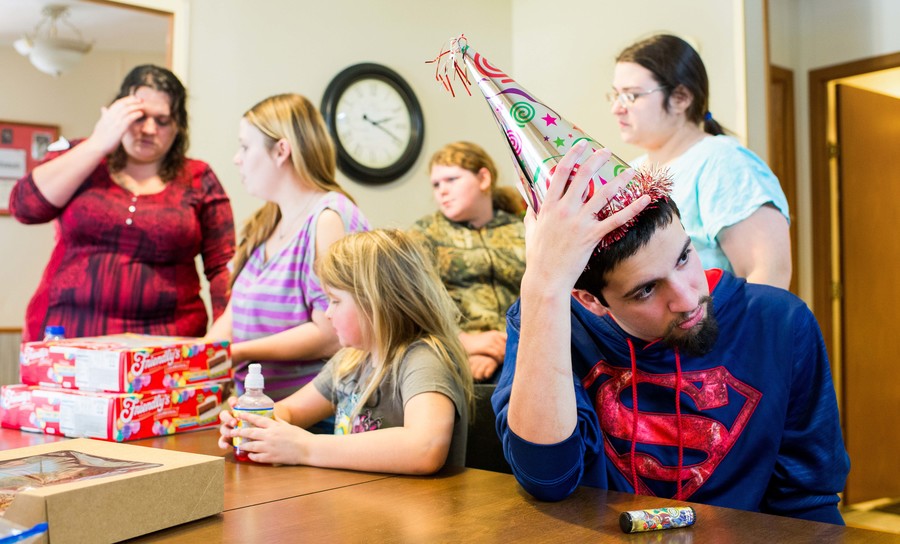
Donald Francis, nicknamed Bubba, right, suffers from Niemann–Pick Type C (NPC). NPC is a progressive genetic neurological disorder that degrades a patient’s brain functions and muscular movements required by some organs to function properly. Patients usually only live into their early twenties. Bubba's family prepares his cake as he waits to blow out the candles during his 19th birthday celebration held at his home in rural Meigs County, Ohio.
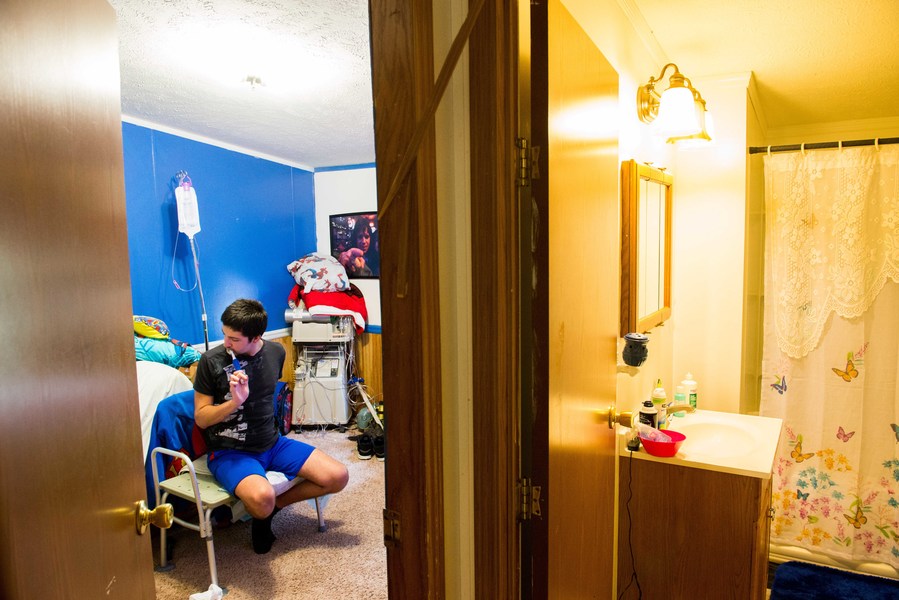
Symptoms of Bubba's muscular failure began presenting themselves when he was 8 years old. He ran strangely, he couldn’t catch a football, and missed targets more and more with his BB gun. Bubba brushes his teeth in his bedroom since he cannot stand long enough by himself to use the sink.
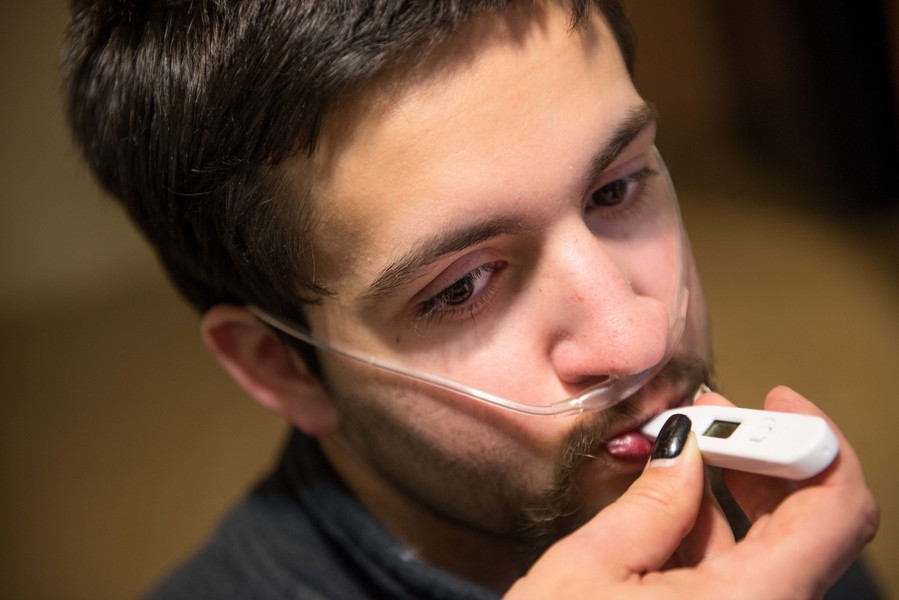
As Bubba grew older, other symptoms began presenting themselves. This began a cycle of visits and tests at the hospital every three months until he was diagnosed at the age of 14. His mother, Michele Barley, takes Bubba’s temperature after his heart rate dropped suddenly. He was given oxygen to help regulate his heart rate.
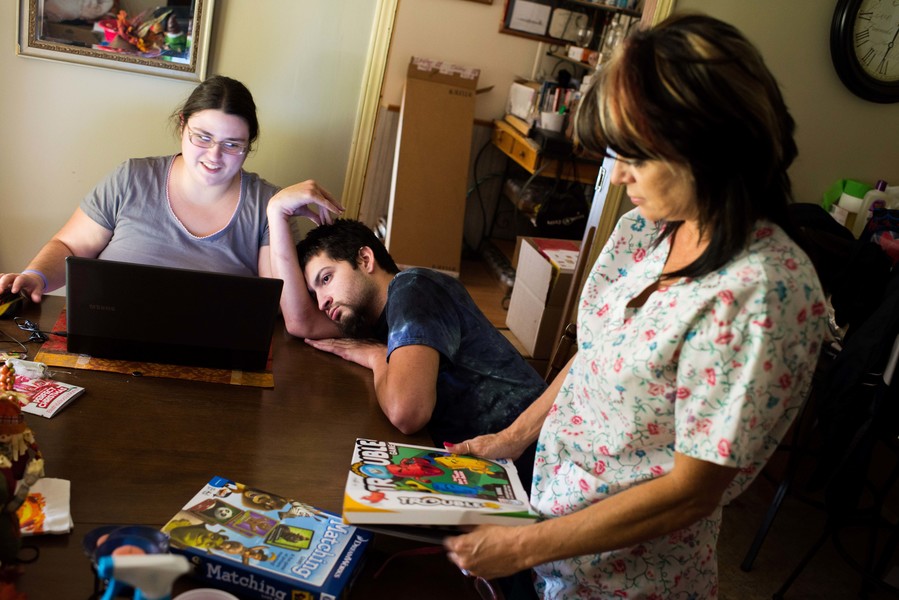
His brain function is deteriorating and is one of the many symptoms of his disease. Bubba currently operates at a 3 to 4-year-old level of comprehension. To keep his mind active, his mother and nurses have him play board games at least once a day. Nurse Barbie Williams, right, pulls out a board game to play with Bubba and his stepsister Leah Barley.
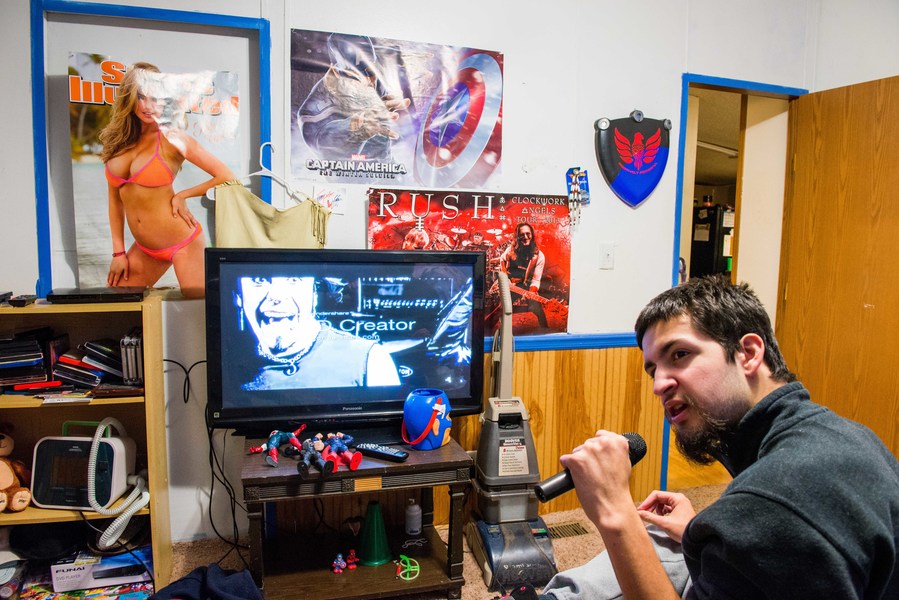
Around the age of 12, Bubba began falling in love with Bobaflex, a hard-rock band from Point Pleasant, West Virginia. “He got something out of it," said his mother. "You could just feel it, he was really getting into the groove of this music and it just touched him somewhere. It was something that we didn’t see very often. We’d never see him enjoy something. He was usually in pain, but when he heard Bobaflex he was happy, danced and sang, just like a normal healthy teenage boy.”
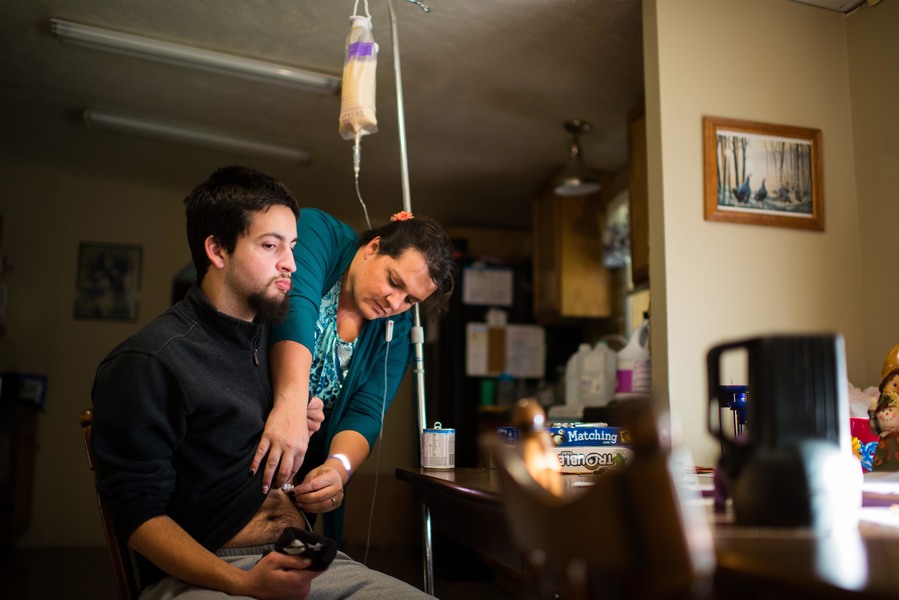
Approximately two years ago, Bubba's doctors determined he could no longer eat by mouth as a result of the muscles in his throat weakening. Bubba now receives three meals a day, formula, water, and medications through a feeding tube connected directly into his stomach.

"I like to think he’s still in there, because he loves to laugh,” said his mom. Michele kisses her son on the cheek after trying to tie his beard with a hair tie. Bubba has steadily lost the ability to talk since last year due to a combination of neurological and muscular malfunctions, and soon he will be unable to say anything.

In August, Bubba’s primary caretaker and stepfather, Dwayne “Duey” Barley, was incarcerated at the Southeastern Probation Treatment Alternative (SEPTA) Correctional Facility in Nelsonville, Ohio, for breaking his probation by crossing state lines. “It’s an adjustment, how Duey’s been gone for three months,” said Michele. She looks out towards the family’s turkey pen as she has her morning coffee.
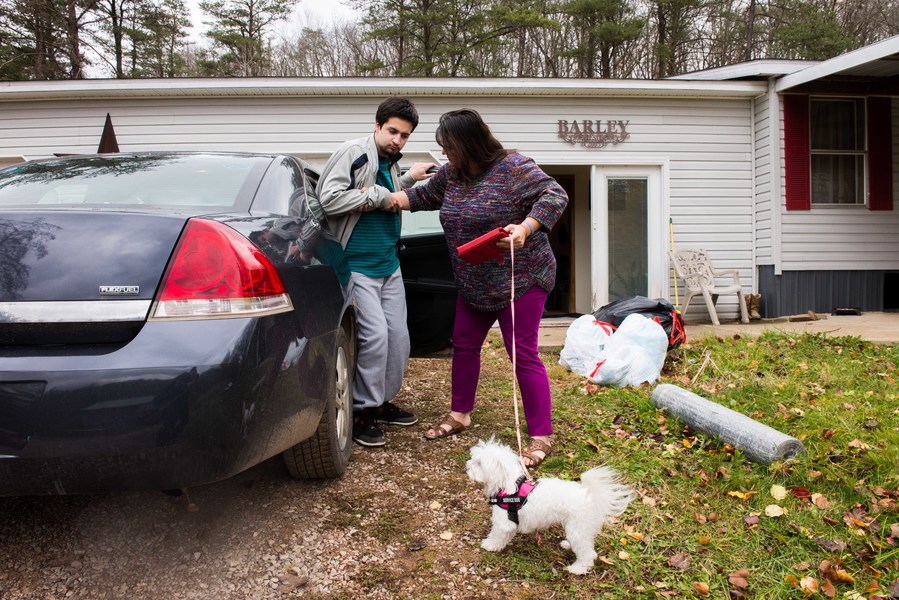
Michele helps Bubba into the car to go visit his stepfather, Duey, at the SEPTA Correctional Facility while she handles Emily, their pet and service dog.

Residents at the correctional facility are allowed visits from family once a week for 30 minutes. A security guard enters the room to end the visitation. Duey will be released from the correctional facility in February of 2016.
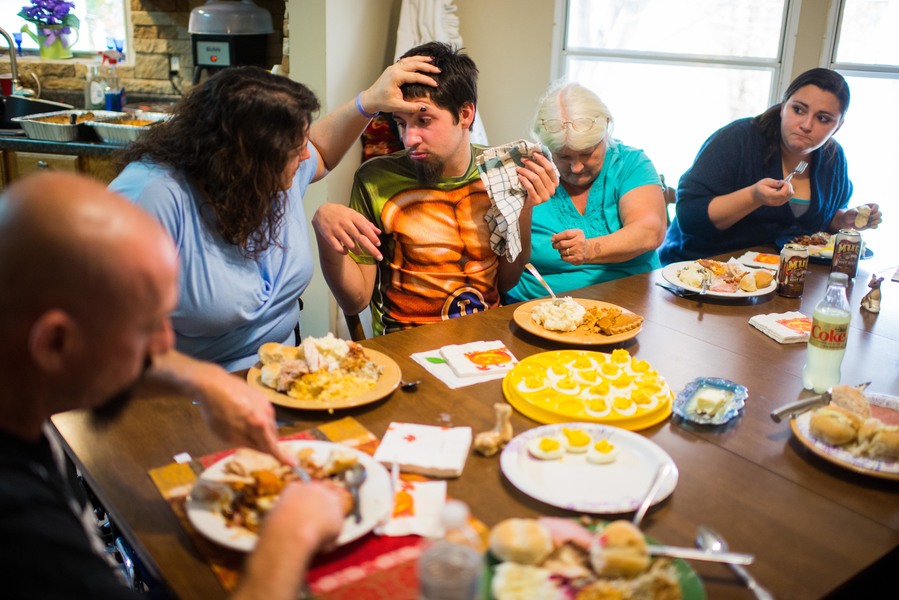
Michele checks Bubba's eyes for signs of a seizure while they sit with their extended family for Thanksgiving dinner. Duey, bottom left, was released for eight hours to spend the holiday with his family and stepson before having to return to the correctional facility.

Over the course of the past year, Bubba has gone from speaking regularly to saying only a few words a day. Bubba struggles to read words from a magazine while his mother helps him sound out the words.

After their Thanksgiving dinner, family gathers on the front porch. "Just to know, that if this was his last Thanksgiving, that at least he could share it with the people he loves and people who love him," said his sister Tiffany Francis, left. "It’s worth more to me than anything."
